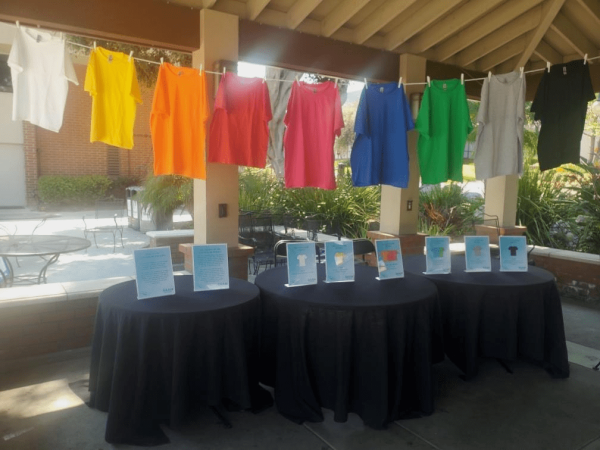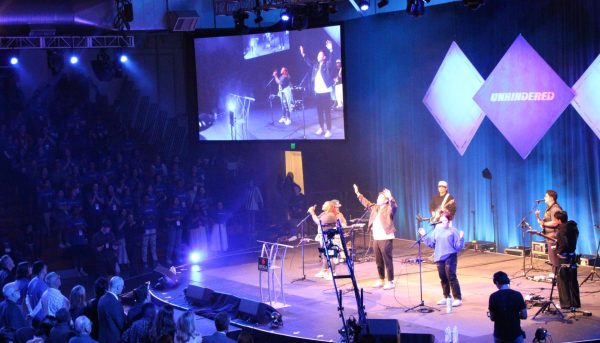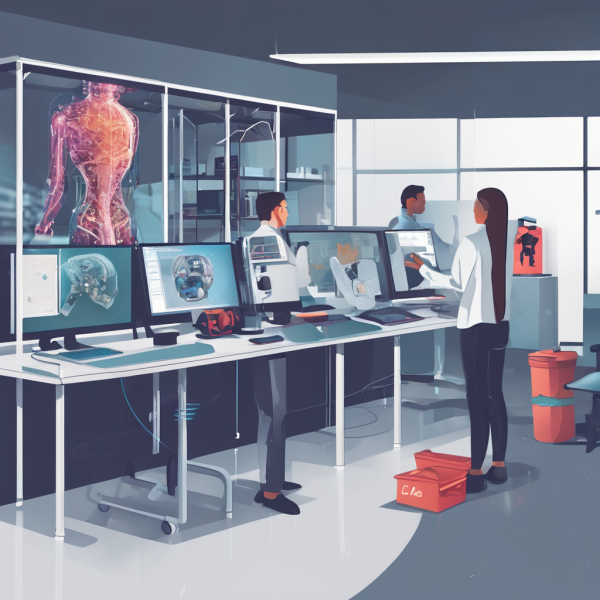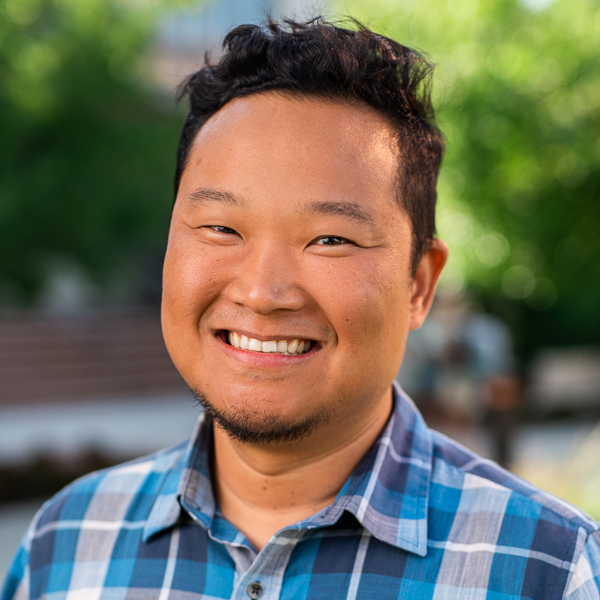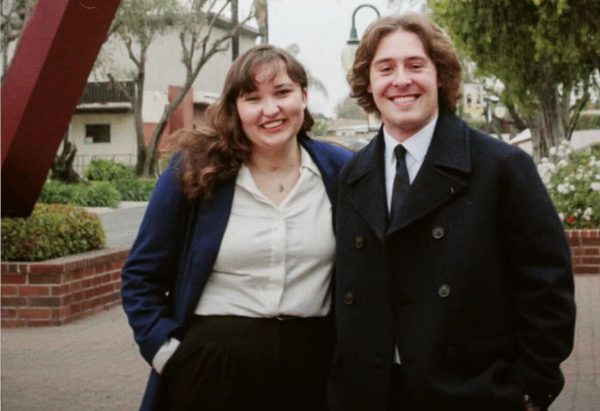Candidates express different visions for AS
A small crowd watched the AS presidential and vice presidential candidates discuss their ideas for AS during a debate on Wednesday.
March 25, 2010
This year’s AS presidential debate on Wednesday, although low in attendance, clarified what each candidate stood for and received many cheers.
The format for the debate was 45 minutes of moderated questions for the presidential candidates, 15 minutes for the vice presidential candidates and a final 10 minutes for questions from the audience.
Presidential candidates Lizzie Neely and Dustin Arnold battled it out first. The issue of experience came up first. Arnold, who has the least amount of AS experience, had to defend himself.
“None of us have applied to be AS president before, so none of us are perfect for the AS president position,” he said, smiling. The audience laughed as he went on to explain that he thinks experience is important and that he does have experience in other leadership roles.
Similarly, both candidates equally expressed to the importance of representing the student body’s voice.
“The main thing is getting to understand what the student’s voice actually is,” Neely said. “We want to know how we can serve you best.”
Arnold suggested a tangible plan:
“We have the idea of Eagle Nest office hours where we are in Eagles Nest every week during certain hours,” he said.
Another topic both candidates agreed on was giving clubs more funding, saying clubs allow students to practice their God-given gifts. Both also disagreed that service hours should be required for Biola students.
“It’s all about your heart and your willingness to serve. It cannot be made mandatory,” Neely said. “The moment you make service mandatory, it stops being a service.”
Despite a lot of agreement, the candidates did express some differing ideas and visions.
When asked about time commitment, both answered differently as to how they would connect with students. Arnold pointed out how many times a day Biola students go on Facebook and suggested using social networking or creating an AS iPhone application to keep in contact with students.
Neely said, however, that while things like Facebook are important, she would want to focus on having as many personal relationships with students as possible.
The candidates also had different ideas about how to deal with the “Biola Bubble,” a phrase many student use to refer to what’s perceived as Biola’s isolated community.
“To cure the bubble would be to increase the student activity,” Arnold said. “This will break down these bubbalicious ideas.”
But Neely countered that sometimes this “bubble” can prepare students for when the time comes to step out of it. She said she believes that Biola can adequately prepare students to go out into the world after graduation.
Senior vice president candidates John Drebinger and Cynthia Pimentel were briefly questioned at the end of the debate. Several points of contention arose. While both agreed that the senior vice president needs to know how to handle conflicts and be able to work with the senators they are overseeing, they described the overall purpose of AS differently.
Drebinger focused on the responsibility of enabling students to make God known while Pimentel stated that “every student of Biola is AS,” emphasizing the importance of students’ ideas.
Pimentel stressed the need for more communication and encouragement in the senate. Drebinger agreed, but presented his idea of training lectures for Senators.
“We can tell them to go out and get to know students, or we can equip them to do that instead,” he said.


